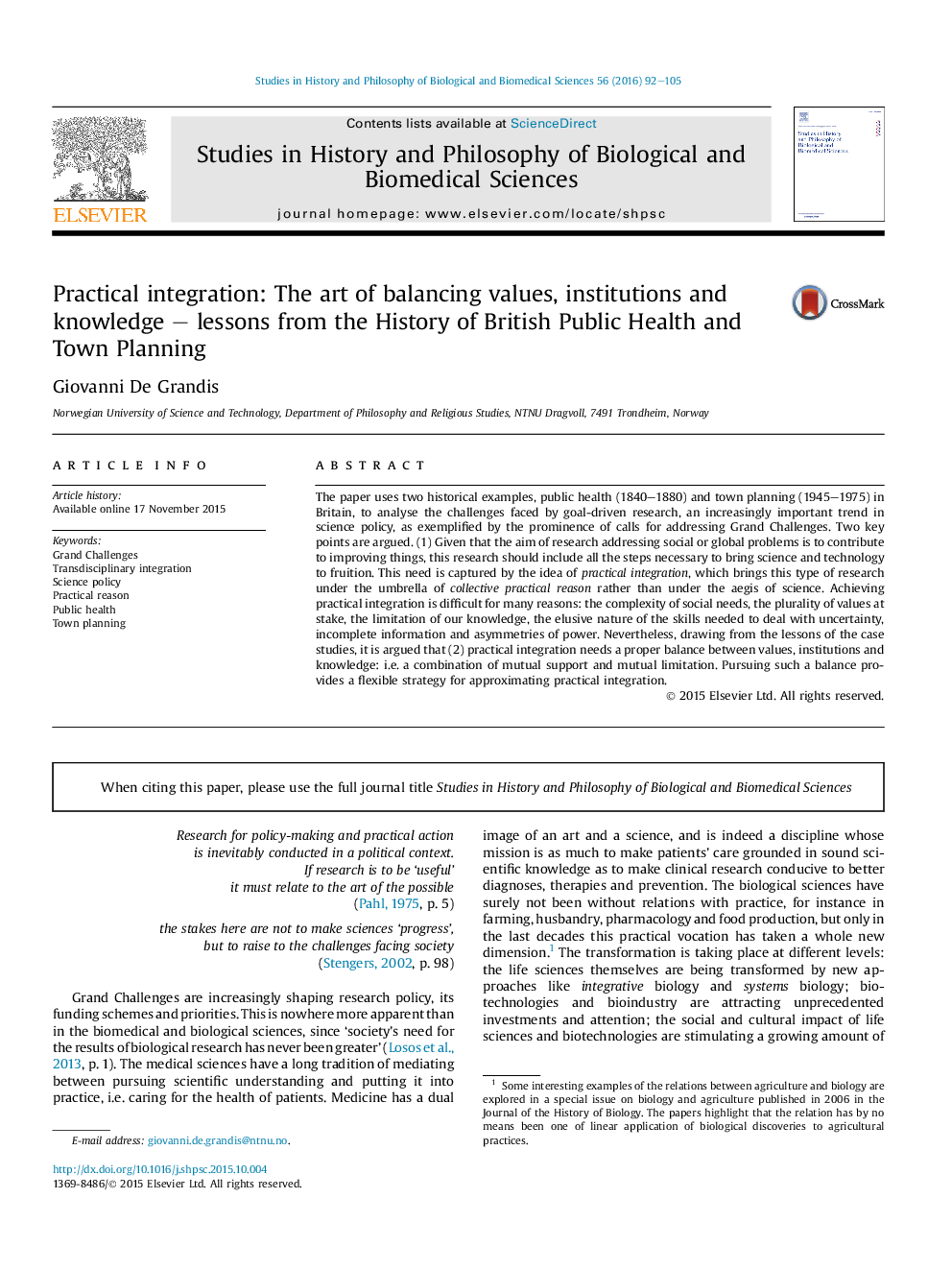| Article ID | Journal | Published Year | Pages | File Type |
|---|---|---|---|---|
| 1161605 | Studies in History and Philosophy of Science Part C: Studies in History and Philosophy of Biological and Biomedical Sciences | 2016 | 14 Pages |
•Grand Challenges are not simply about scientific knowledge.•Grand Challenges demand effective action by transdisciplinary teams.•Transdisciplinarity requires more than epistemic integration.•Practical integration includes skills and means for effective action.•Practical integration requires harmonizing values, institutions and knowledge.
The paper uses two historical examples, public health (1840–1880) and town planning (1945–1975) in Britain, to analyse the challenges faced by goal-driven research, an increasingly important trend in science policy, as exemplified by the prominence of calls for addressing Grand Challenges. Two key points are argued. (1) Given that the aim of research addressing social or global problems is to contribute to improving things, this research should include all the steps necessary to bring science and technology to fruition. This need is captured by the idea of practical integration, which brings this type of research under the umbrella of collective practical reason rather than under the aegis of science. Achieving practical integration is difficult for many reasons: the complexity of social needs, the plurality of values at stake, the limitation of our knowledge, the elusive nature of the skills needed to deal with uncertainty, incomplete information and asymmetries of power. Nevertheless, drawing from the lessons of the case studies, it is argued that (2) practical integration needs a proper balance between values, institutions and knowledge: i.e. a combination of mutual support and mutual limitation. Pursuing such a balance provides a flexible strategy for approximating practical integration.
